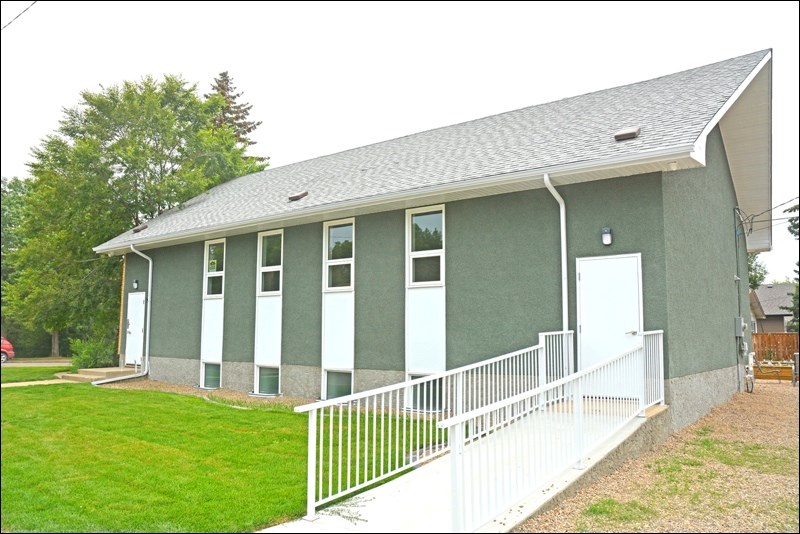The Canadian Mental Health Association North Battleford branch is a number of things. It is a refuge for its members and a place for people with mental health issues to feel welcome. The new location at 103rd Street and 16th Avenue serves as an office, a social space and a house.
The CMHA is a non-profit organization that supports people with significant mental health problems and mental illness. There are nine branches in Saskatchewan, with a number of others in different provinces. Among the North Battleford branch’s offerings are social recreation programs, work experience programs, and life skills.
Increased membership and programming necessitated a bigger building than the previous location.
“We didn’t need new, we needed bigger,” Executive Director Jane Zielke de Montbrun said. “Before we were in a small skinny building that was 1,400 sq. ft., and it got to the point where we had a very difficult time trying to facilitate our programs with the space that we had.”
Zielke de Montbrun said when she started in 2011, there were about 65 members and 15 in the work program. By the end of March last year, there were 160 members, with 38 to more than 40 people in the work program, although the number fluctuates.
Zielke de Montbrun said the social recreation programs run four evenings a week and on weekends. Activities include men’s and ladies’ nights, movie night, wiener roasts and bowling. Members sign up to participate in the events. Socialization is the goal of the activities.
“People that have mental illness tend to isolate themselves,” Zielke de Montbrun said. “It’s part of the nature of the beast.”
Work programs involve a number of jobs in town, including flyer delivery, lawn-mowing, snow removal, small moving jobs, delivering phone books and cleaning the Civic Centre after North Stars games. Members also work at the David Laird campground, performing grounds maintenance, facility management, cleaning bathrooms and showerhouses and bundling firewood.
Zielke de Montbrun said the work members perform is often seen as menial, but she said the work “contributes to the health of this community,” especially for elderly people who can’t shovel their sidewalks.
The life skills program teaches a number of abilities, while a seniors group meets once a week. The CMHA also features a coffee and lunch program, where anyone can join for lunch for three dollars.
On the top floor of the new building, there are two offices by the front door, a space resembling a living room with couches and a TV, and a kitchen. Coffee is 25 cents and there are often cookies.
Beside the kitchen is a consultation room, a room Zielke de Montbrun said she’s “very proud of.”
“Most everybody you see [at the branch] has a community mental health nurse to help support them, and often [nurses] will come to see them.”
The room also has a computer with internet access. Waits to see counsellors can typically last six weeks, but the branch offers free online cognitive behavior therapy through the University of Regina, “to at least give them something,” she said.
Downstairs (which is mobility accessible), there is a large social space where the board meets, along with a room for social recreation, a room with a washer and dryer, and a room for staff. Outside there are garden beds with flowers and a new garage. The new building also has five washrooms, as opposed to two in the previous building.
Zielke de Montbrun said the fundraising target that includes the building costs was $615,000, and as of last month, there was $60,000 left to raise. Fundraising initiatives include a garden party in June, which raised $54,000. CMHA staff include three full-time program coordinators, two part-time job coaches, one seasonal job coach and members who are also employees.
The number of people in the building depends on the time of day. When Shelby Obermeyer opened the door to a visit by the Regional Optimist, there were a half dozen people inside. Later, the place was bustling as members gathered before going for coffee in CMHA vans.
Zielke de Montbrun said one of her goals before she retires is to “establish supported housing for people with mental illness to successfully live independently.”
Zielke de Montbrun added she admires the members at the branch.
“It’s very rewarding working here. [Members] enrich my life in lots of ways. There are a lot of brave people that have significant mental health problems and are still able to come and do their bit.
“In some respects these folks are kind of like my second family.”




